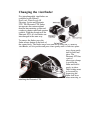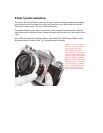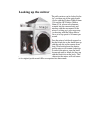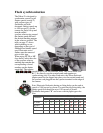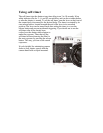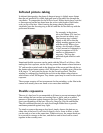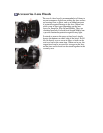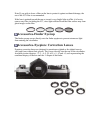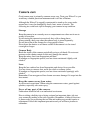
Camera care
Good camera care is primarily common sense care. Treat your Nikon F as you
would any valuable precision instrument and it will last a lifetime.
Although the Nikon F is ruggedly constructed to stand up for years under
normal use, it may be damaged by shock, heat, water or misuse. The
following are some basic tips for keeping your camera in top condition.
Storage
Keep the camera in an eveready case or compartment case when not in use to
protect it from dust.
Avoid storing the camera in excessively hot, cold or damp places.
Always attach a body cap when the camera body is stored separately.
Do not leave film in the camera for a long period of time.
Never leave the shutter or self-timer cocked if the camera is to be stored
overnight or longer.
Camera Body
Brush the inside of the camera periodically using a soft brush. Do not exert
pressure on the shutter curtain as this may damage the curtain.
Keep the mirror free from fingerprints and dust.
If smudges or fingerprints persist, use lens tissue moistened slightly with
alcohol.
Lens
Keep the lens surface free from fingerprints and dust as far as possible.
Use lens tissue to remove dust, never use cloth or ordinary tissue.
If smudges or fingerprints persist, use lens tissue moistened sparingly with
alcohol.
Remember: Even an approved lens cleaner can cause damage if it seeps into the
lens mount.
Keep the camera away from water.
Avoid excessive moisture. When using the camera near water, guard against
splashes, especially salt-water spray.
Never oil any part of the camera.
Lubrication should be left to an authorized serviceman.
Prior to taking a holiday trip or being assigned an important photo job, test
your camera by making a few trial exposures. Remember, it takes at least two
or three weeks for processing the test film and making any needed repairs or
adjustment. Follow this important precaution and you will have pictures to
remember.




